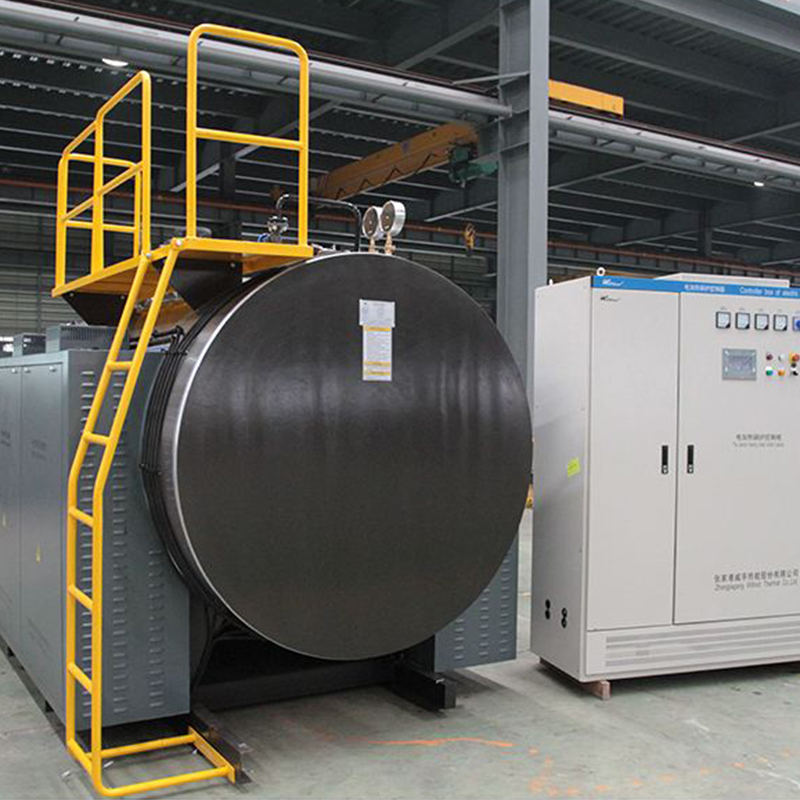thermal oil boiler for asphalt plant product
Thermal Oil Boilers for Asphalt Plants
In the asphalt production and paving industry, the efficiency and reliability of heating systems are crucial to ensuring that materials are processed correctly and meet quality standards. Among the various heating options available, thermal oil boilers have emerged as a preferred choice for asphalt plants. These specialized boilers offer a range of benefits, making them ideal for high-temperature applications such as asphalt production.
What is a Thermal Oil Boiler?
A thermal oil boiler is a type of heating system that uses thermal fluid, or oil, as a heat transfer medium. Unlike traditional water boilers, which can only achieve a maximum operating temperature of around 180 °C due to the boiling point of water, thermal oil boilers can operate at much higher temperatures, often exceeding 300 °C. This capability allows for efficient heat transfer and precise temperature control, which are essential for the production of high-quality asphalt.
Advantages of Thermal Oil Boilers
1. High Efficiency Thermal oil boilers are designed to maximize heat transfer efficiency. The thermal oil circulates through the heating system, absorbing heat from the combustion process and delivering it directly to the asphalt production equipment. This direct heating method minimizes energy losses and enhances overall efficiency.
2. Temperature Control Consistent and precise temperature control is critical in asphalt production. Thermal oil boilers can maintain stable operating temperatures, ensuring that the asphalt is heated uniformly. This uniformity prevents issues such as uneven mixing, which can compromise the quality of the final product.
3. Safety With their closed-loop system, thermal oil boilers minimize the risks associated with traditional heating methods, such as steam boilers. The thermal fluid is not subject to pressure like steam, significantly reducing the risk of explosion or other safety hazards. This makes thermal oil systems a safer option for processing facilities.
thermal oil boiler for asphalt plant product

4. Environmental Impact Thermal oil boilers can operate with various fuel types, including natural gas, diesel, and even biofuels. The ability to choose cleaner fuel options contributes to reduced emissions, supporting environmental compliance and corporate sustainability goals.
5. Low Maintenance The closed-loop design of thermal oil systems requires less frequent maintenance than traditional boilers. The thermal fluid does not evaporate or dissipate like water, reducing the need for regular top-ups and maintenance checks. This not only saves time but also lowers operational costs in the long run.
Application in Asphalt Plants
In asphalt plants, thermal oil boilers play a pivotal role in heating various components, including bitumen and aggregates. The heated thermal oil is separated into different heating zones, allowing for precise control over the temperature at which different materials are processed. This is vital for achieving the right consistency and quality of asphalt, as variations in temperature can affect the performance and durability of the finished product.
Moreover, the high-temperature range offered by thermal oil boilers makes them suitable for preheating aggregates before mixing, ensuring that the materials adhere properly during mixing and paving. The ability to maintain specific temperatures during the entire production process contributes to better quality control and enhances the physical properties of the asphalt.
Conclusion
Asphalt plants rely on efficient and effective heating solutions to deliver quality products that meet industry standards. Thermal oil boilers have established themselves as an optimal choice due to their high efficiency, enhanced safety features, and precise temperature control. They provide a reliable way to heat various materials, ensuring that the asphalt produced is durable, consistent, and ready for application. As the industry continues to focus on sustainability and environmental responsibility, the adoption of thermal oil technology in asphalt production is likely to become even more prevalent, paving the way for a greener future in road construction.
-
Top Electric Steam Boiler Manufacturers | Industrial Solutions & CustomizationNewsJul.27,2025
-
Top Electric Steam Boiler Manufacturers | Industrial Steam SolutionsNewsJul.26,2025
-
Top Electric Steam Boiler Manufacturers – Reliable Industrial SolutionsNewsJul.25,2025
-
Top Electric Steam Boiler Manufacturers – Reliable Industrial SolutionsNewsJul.24,2025
-
Top Electric Steam Boiler Manufacturers – High Efficiency & ReliabilityNewsJul.23,2025
-
Best China Steam Boiler Price for Efficient Industrial HeatingNewsJul.22,2025

